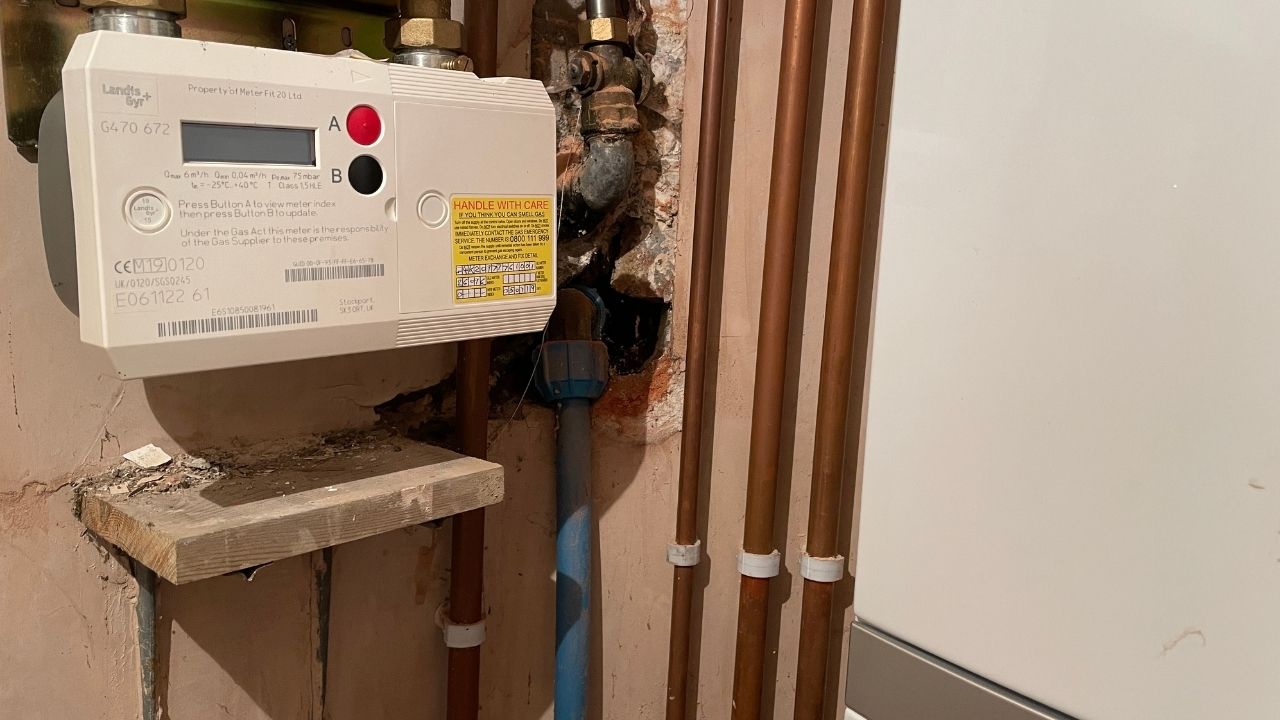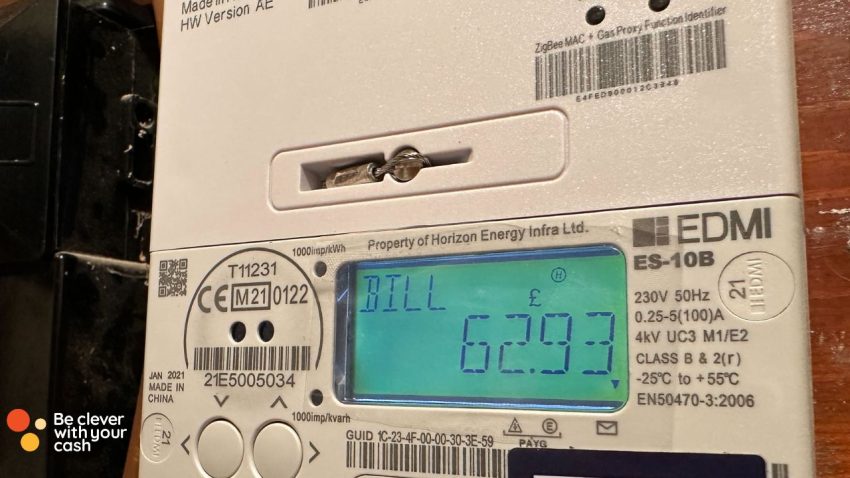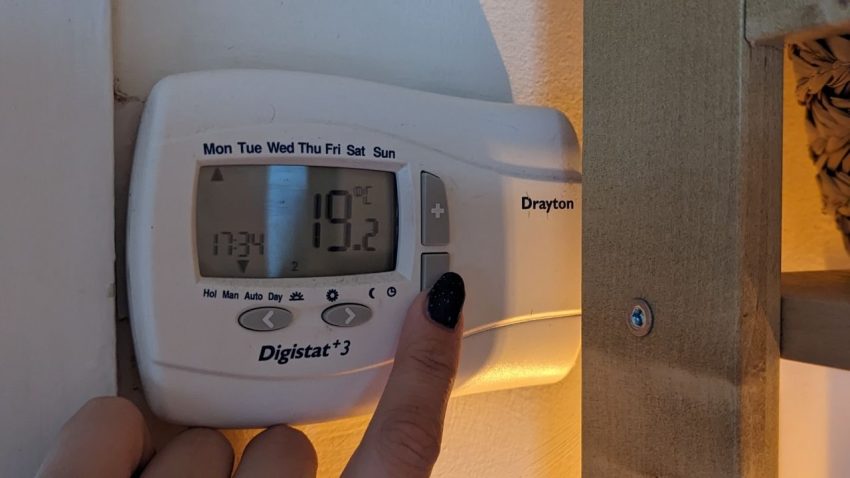How to get support to pay your energy bills
As inflation continues to fall, you’d be forgiven for thinking that we’re over the worst when it comes to living costs. But even though energy bills are set to fall again, they’re still very high compared to historic levels.
It can feel extremely daunting if you think you’re not going to be able to pay your energy bills. But try not to panic as you’re most certainly not alone and there is help available.
Here, we break down your options if you think you can’t afford to pay your energy bills.
Some articles on the site contain affiliate links, which provide a small commission to help fund our work. However, they won’t affect the price you pay or our editorial independence. Read more here.

What to do if you can’t afford to pay your energy bills
Record numbers of people are seeking energy debt help before winter kicks in, according to Citizens Advice.
Around 7.8 million people borrowed money to pay their energy bills in the first six months of 2023. And one in four say that their energy bill is the essential living cost that they’re most worried about.
If you’re worried about paying for gas and electricity, the most important thing you can do is to act quickly and get support to help you find affordable ways to power your home. Some of the steps you can take if you don’t think you can afford your energy bills include:
Use less energy
This may sound very obvious but if you haven’t done so already, try to find ways to use less energy around your home.
Here are a few quick and easy ways to cut your energy usage and estimates of how much they could save you per year according to the Energy Saving Trust:
- Switching devices off at the plug – saves £60
- Don’t overfill the kettle – saves £37
- Using your washing machine less – saves £30
- Turning off lights you aren’t using – saves £25
Again, these may sound really simple but small changes can make a huge difference to your bill.
There may also be grants available for you to improve the insulation around your home to save energy and lower your bills. However, it’s important to be aware that these grants may not cover the entire cost of the insulation work so you may have to foot some of the bill yourself.
Homeowners in England and Wales can get tips on how to make their homes cheaper to heat and keep warm through GOV.UK. If you own a home in Scotland, visit Home Energy Scotland for your personalised energy-saving recommendations. And property owners in Northern Ireland can get advice from NI Direct.
It’s worth pointing out that even though the recommendations can save you money in the long term, there may be some upfront costs to invest in the work that needs to be done.
Talk to your energy provider
Get in touch with your energy supplier as soon as possible if you think you can’t afford to pay your energy bills. Even if you’re trying out some of the energy-saving tips mentioned above, letting them know about your financial situation sooner rather than later can help get the ball rolling to find an affordable solution for you.
Ofgem (the energy watchdog) set out some rules to make sure that your energy supplier supports you in any way that they can.
So if you don’t think you’ll be able to pay your bills you can ask your provider for:
- a review of your payments and debt repayments
- payment breaks or reductions
- more time to pay
- access to hardship funds
- advice on how to use less energy
- Priority Service registration (this is a free support service if you are in a vulnerable situation.)
Now, this support won’t wipe away your bills – you’ll still have to pay them in full. However, your supplier can help you find the best way to make a plan to pay them back affordably.

Challenging your energy bills
It’s worth remembering that you’re entitled to challenge your energy bills if you think they’re too high (even if you can afford to pay them).
You’ll just need to contact your provider and explain why you think you’re being overcharged. And they’ll reassess your payments. This could help you cut the cost of your bills if you’re being overcharged.
But, you may have to continue paying your existing rate or more if the new estimate suggests otherwise.
Apply for energy bills support
Local authorities, energy suppliers and some charities offer grants to help vulnerable households that can’t afford their energy bills.
Although you’ll need to qualify to get these grants, it is always worth checking to see if you’re eligible. As it could make a massive difference if you are able to get financial support.
Reprioritise other debts
If you’re struggling to pay more than just your energy bills it may be worth reprioritising your bills and debts. Of course, keeping up with each of your bills is important, however, some have more serious consequences than others if you don’t repay them.
Things like your rent or mortgage payments, Council Tax and energy bills are a high priority because not paying them back could land you in hot water. For example, you could end up losing your home, having a visit from bailiffs or getting the power and heating shut off from your property.
Non-priority debts include things like water bills, credit cards and parking tickets because not keeping up with them doesn’t affect your access to your home, belongings and power supply. Again, do remember that all bills are important and you will need to get around to clearing them at some point.
Working out which bills are a priority can seem tricky but there is help available, especially if you need more detailed advice.
Charities such as Citizens’ Advice, Step Change and National Debtline offer free debt support. You’ll be assigned a debt specialist who reviews your financial circumstances and works with you to get your finances on the right track.
Get the best of our money saving content every week, straight to your inbox
Plus, new Quidco customers get a high paying £18 welcome offer

 Featured switching deal
Featured switching deal
 Customer rating
3.8/5
Customer rating
3.8/5
- Switch bonus£200
- Offer endsUnknown
- Extra bonus£25 Amazon Gift Card
- FSCS Protected? Yes
- Switch bonus requirements Switch using the Current Account Switch Service and close your old account within 60 days of starting the switch
- Deposit requirements Deposit £1,500 in the first 60 days from opening the account
- Direct debits transferred over Set up two Direct Debits before or after the switch from a selected list of household bills
- Existing customers? Can't have held any Santander current account on 1 January 2025
- Restrictions Can't have received a switching bonus from Santander already, offer limited to once per person
- Eligible accounts Open a new or hold an existing Everyday, Edge, Edge Up or Edge Explorer current account
- £25 Amazon Gift Card requirements To qualify for the gift card, you need to complete a full switch using CASS, and make five debit card transactions within 30 days of opening the account
What happens if you stop paying your energy bills?
The consequences of not paying your energy bills (whether you can’t or choose not to) are pretty dire. It can seriously damage your chances of getting a cheaper energy deal in the future, borrowing money or even getting something like a mobile phone contract.
You’ll lose your Direct Debit discount
Most energy suppliers offer a discounted rate if you opt to pay your bills via direct debit. So if you already pay using direct debit and cancel, you’ll likely be charged a higher rate.
Late payment charges
Some suppliers may charge a fee for missed or late payments. Which could make your energy debt more expensive the longer you don’t pay.
You can find out whether your supplier charges a late payment fee in your energy contract. And if anything is unclear or you can’t locate the fee, get in touch with customer service to find out.
Debt enforcement
Any arrears you build up from not paying your energy bills will still exist until you clear them.
This applies even if you have agreed a repayment plan with your supplier. Because essentially the plan is in place to help you pay off everything you owe. It’s just that the timeline or rate at which you make the repayments might be slightly different.
And if you continue to not pay (or don’t keep up with your repayment plan) your provider can take more serious debt enforcement action.
For example, they could pass your debt onto a debt collection agency, send bailiffs to your home or even apply to the court to have money taken out of your wages or benefits.
It negatively affects your credit score
Missed or late energy repayments are recorded on your credit file for six years, which can damage your credit rating and hurt your chances of borrowing in the future.
That’s because it signals to anyone looking at your credit file that you don’t have a good history with managing money and paying off what you owe.
This could make it a lot harder to get things like a cheap energy deal, mortgage, credit card or even a mobile phone contract in the future.
You might be forced onto a prepayment meter
Your energy supplier may switch you onto a prepayment meter if you continue not to pay your bills. That’s where you have to top up the electricity in your home using a key fob fob or card.
It’s a last-resort measure before disconnecting your power though. And you can only be switched if you aren’t classified as a vulnerable person and the meter is safe and practical for you to use.
Now, although some people prefer prepayment meters for budgeting purposes, overall they are more expensive to run than a standard meter. So switching to one will drive up the cost of your energy even more.
Your power could be cut off
Failing to pay your energy bills for long enough could get the electricity and gas to your home cut off altogether. This is usually reserved for extreme cases, though.
And, your supplier will try to work with you to find other solutions before considering disconnecting your electricity and gas supply.
Should you refuse to pay your energy bills?
Despite the energy price cap falling in July this year bills are still very high. Leaving households under a lot of financial pressure and the impact has been truly devastating for some.
The idea of making real change by taking direct action is appealing and certainly brings an air of hope that collectively we can make a difference. There’s even a campaign group called Don’t Pay UK which encourages people to join a collective protest against bills.
But looking at the bigger picture, simply refusing to pay your energy bill is likely to do you more harm than good. Choosing not to pay will seriously affect your finances for years to come.
The biggest influence on what energy companies are charging right now is the government and the energy price cap.
So as things stand, we need continued legislative action to bring energy companies to task and ensure that energy is priced fairly and everyone can afford to power and heat their homes.






This is all true but it doesn’t help energy companies are telling us on the news that they have made record profits, I mean if you put up prices 3 fold of course your going to make big profits. These type of statements are rubbing our faces in it, its just so in your face it’s not real
Where are these profits going ? Some fat cat in Switzerland or something.
It should be going back to put the charges on energy down again
It’s not the retail companies that we buy our energy from that are making the profits. A large number have gone out of business. It’s the wholesalers. As they sell to the retailers, they’re probably not too bothered if individuals pay them or not. It won’t bring down prices, which are set on the international market. We know what the profits are and who gets them. The likes of BP and Shell. The government can tax windfall profits if they choose.
The thing may well be that the profits largely go to shareholders… who can often be the pension funds that pay occupational pensions to those who complain about profits going to shareholders. In the main shareholders are not individuls they are pension funds.
This is quite difference to most of the advice I’ve seen which recommends cancelling your direct debit but setting up a standing order for the amount you genuinely can afford to pay which can’t be changed by the energy company. Worth checking out Jack Monroe’s Twitter Thread on this.
Yep, you can pay by standing order rather than direct debit.
However as the article says if you do this, you’ll lose the direct debit discount.
And if you’re not paying an amount that covers your usage you’ll be building up a debt which the energy company will try to get back from you, and eventually could move to put you on a prepament meter.
Of course the problem isn’t really how you pay but whether you can afford to pay.
All this talk about energy cap? what does it mean
how does it work ? If i pay what the energy supplier asks for will i reach my cap and will i then pay less
how do i find out my cap limit
So the cap is based on the price per unit of energy, not a cap on how much you can use. The prices given are based on average energy use. So if you use less, your bill will be lower, if you use more, it’ll be higher.